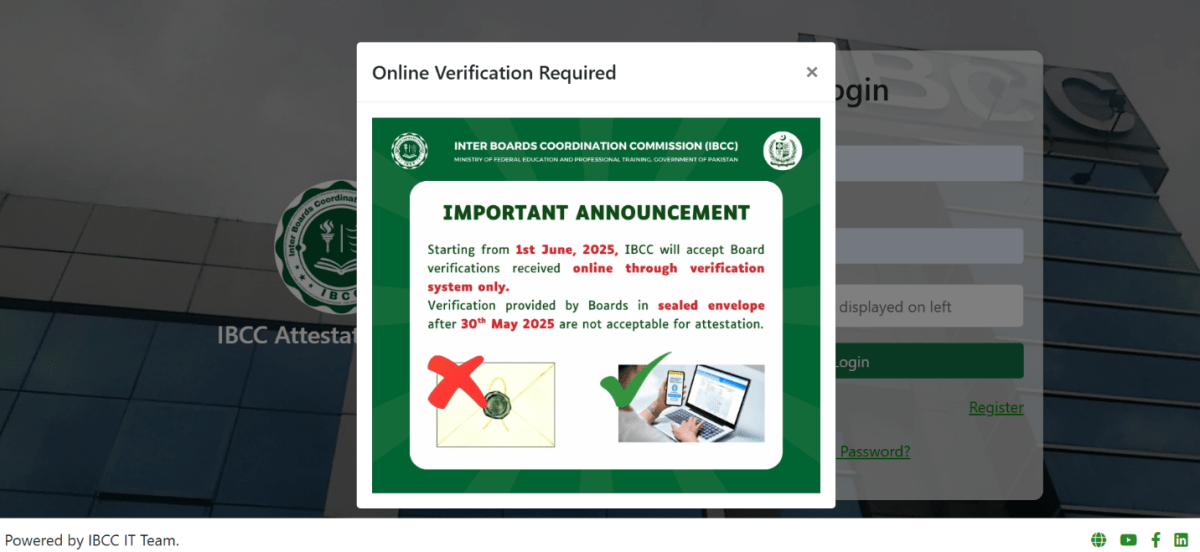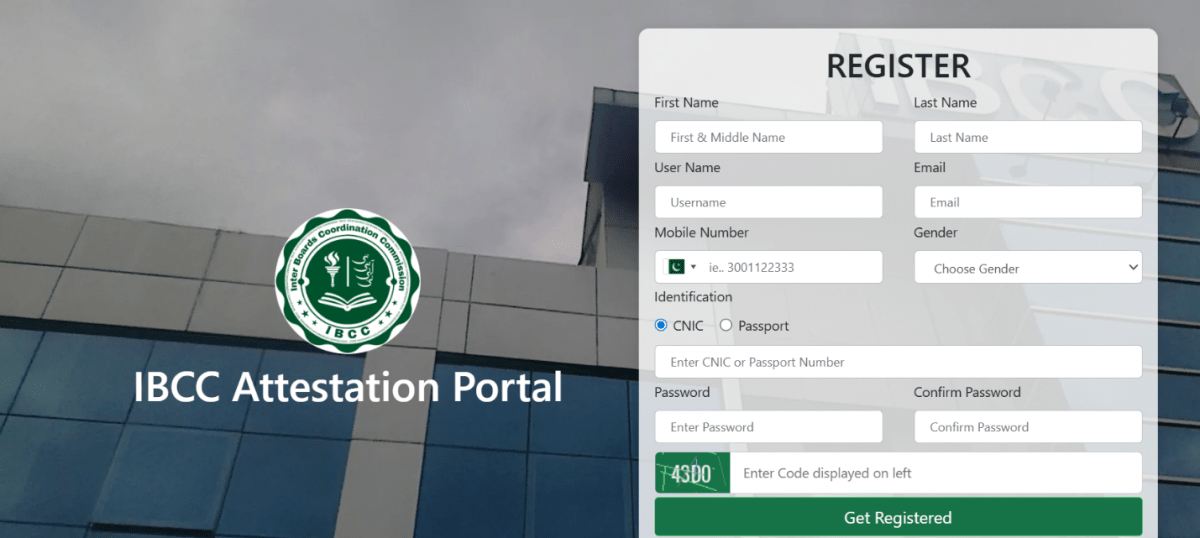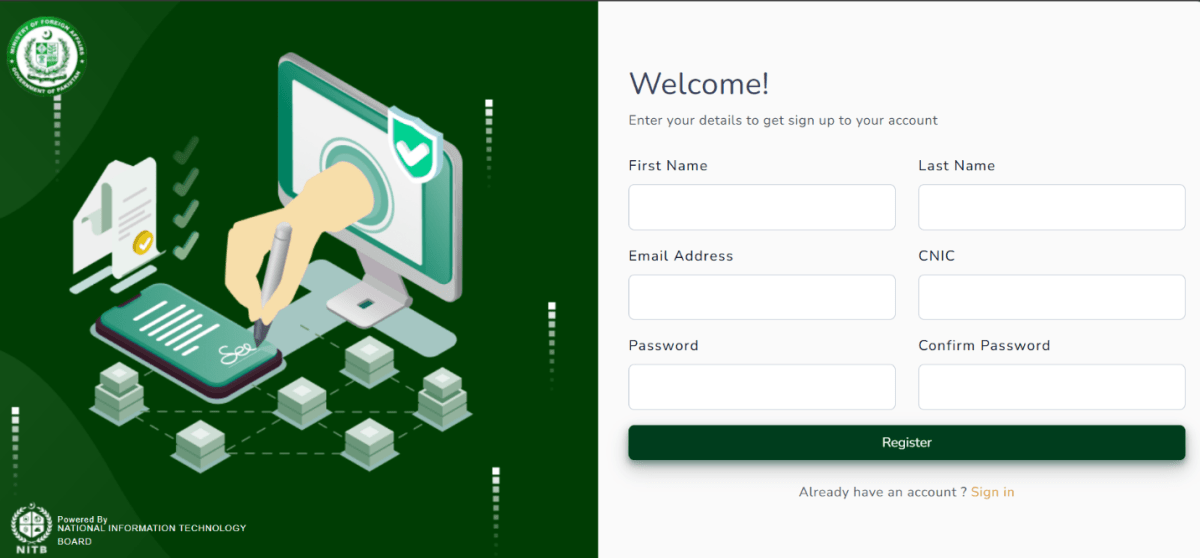A Simple Guide to Educational Documents Attestation in Pakistan

Document attestation is an important process for students and professionals in Pakistan who plan to work, study, or settle abroad. It verifies the authenticity of your academic documents and makes them acceptable internationally. Below are the most frequently asked questions about educational document attestation in Pakistan.
What educational documents need attestation in Pakistan?
The most common documents that require attestation are:
SSC (Secondary School Certificate): Marksheet, DMC (Detailed Marks Certificate), and Certificate
HSSC (Higher Secondary School Certificate): Marksheet, DMC, and Certificate
Bachelor’s Degree and Transcript (or DMC)
Master’s Degree and Transcript
How to attest SSC and HSSC documents in Pakistan?
Step 1: How to verify SSC and HSSC documents with the board?
Your SSC and HSSC certificates must first be verified by the respective educational board. Marksheet, DMC, and Certificate are required for this verification.
Step 2: How to get attestation from IBCC (Inter-Board Committee of Chairmen)?

After verification, take your documents to IBCC for attestation. The available modes are:
Courier Mode: Slower, not recommended if you are in a hurry
Physical Appointment
Express Service (Urgent): PKR 3000 per document, same day (after 4:30 pm)
👉 Register at IBCC Attestation Portal. Link

Step 3: How to get SSC & HSSC documents attested by MOFA?
After IBCC attestation, visit the Ministry of Foreign Affairs (MOFA) for the final attestation step before sending documents abroad.
How to attest Bachelor’s and Master’s degrees in Pakistan?
Step 1: How to verify degrees with the university?
University verification may be required before HEC attestation. However, it is not needed if:
Your degree is semester-based and not from an affiliated college
Your transcript has a single manual handwritten signature
Step 2: How to get attestation from HEC (Higher Education Commission)?
After verification, HEC attests your documents. Options include:
Walk-in (Urgent Mode): PKR 5000
Courier Mode (Normal): PKR 2000
Courier Mode (Time-taking): Slower option, not recommended if urgent
👉 Register at HEC Attestation Portal. Link

Step 3: How to get degrees attested by MOFA?
After HEC attestation, you must visit MOFA for the final step.
What is the difference between Apostille and Embassy attestation?
Countries not accepting apostille: Qatar, Saudi Arabia, UAE, Austria
Countries accepting apostille: More than 140 worldwide
If your destination country accepts apostille, you can get it directly from MOFA. Otherwise, embassy attestation will be required.
How does MOFA attestation work in Pakistan?
No appointment is required, but you must arrive early.
The last token is issued at 12:00 pm (including Fridays).
Always carry all your documents together for attestation.
How does the apostille process work in Pakistan?
Apostille requires an online appointment with MOFA.
Documents must first be attested by IBCC and HEC.
Courier Mode is reliable, but Express Service is the fastest option.
👉 Register at MOFA Apostille Portal. Link

What are some important notes for IBCC and HEC attestation?
In IBCC, a blood relative can submit documents for attestation.
In HEC, a friend can submit documents with an authority letter.
Fees for both IBCC and HEC can be paid through one link.
For IBCC, payment can also be made at UBL Bank windows inside the IBCC office.
Why is educational document attestation important in Pakistan?
Document attestation ensures your academic credentials are legally recognized abroad. Although the process may seem lengthy, using the right mode—courier, express, or walk-in—makes it more efficient. Proper attestation is essential for study visas, job applications, and immigration processes.
FAQs
1. Can I get MOFA attestation without prior IBCC or HEC attestation?
No. The Ministry of Foreign Affairs (MOFA) will not attest your educational documents unless they have already been attested by the relevant authority:
IBCC for SSC and HSSC documents.
HEC for Bachelor’s and Master’s degrees.
2. What if my documents are laminated or damaged?
Laminated documents are often rejected by IBCC and HEC during the attestation process. If your documents are laminated or damaged, you will need to:
Provide the original unlaminated document, or
Obtain a verified duplicate from the issuing board, university, or institution.
3. Do I need to carry original CNIC or passport for attestation?
Yes. When submitting your documents for attestation at IBCC, HEC, or MOFA, you must carry a valid original CNIC or passport along with photocopies for verification purposes.
Join the conversation
Sign in to share your thoughts and engage with other readers.
No comments yet
Be the first to share your thoughts!